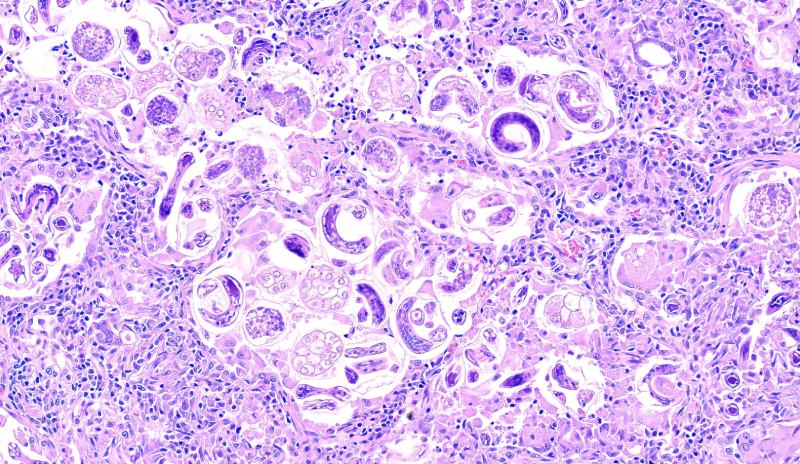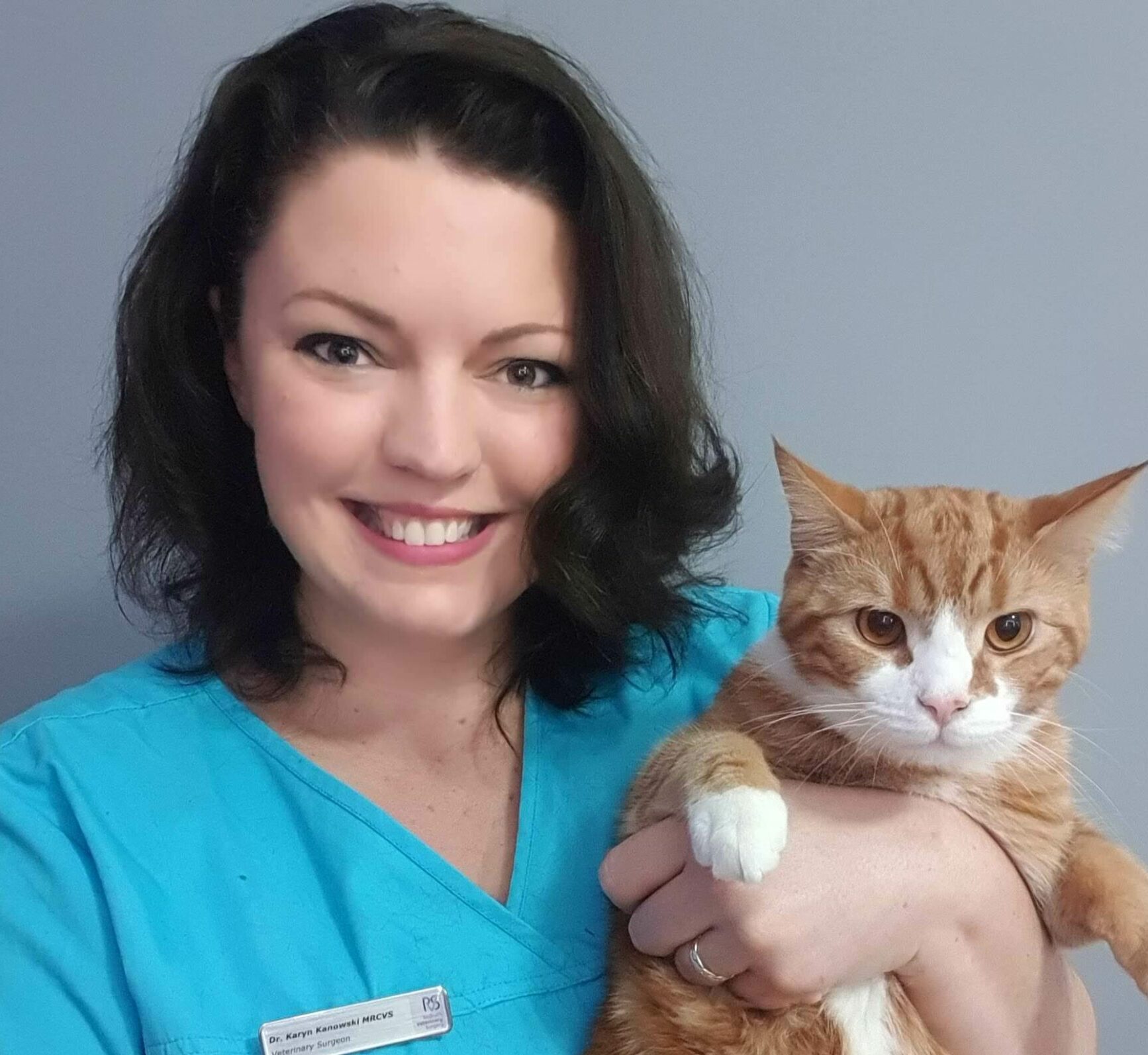How Long Do Cats Take to Recover From Jaundice? Our Vet Answers
By Dr. Kim Podlecki, DVM (Vet)
Updated on
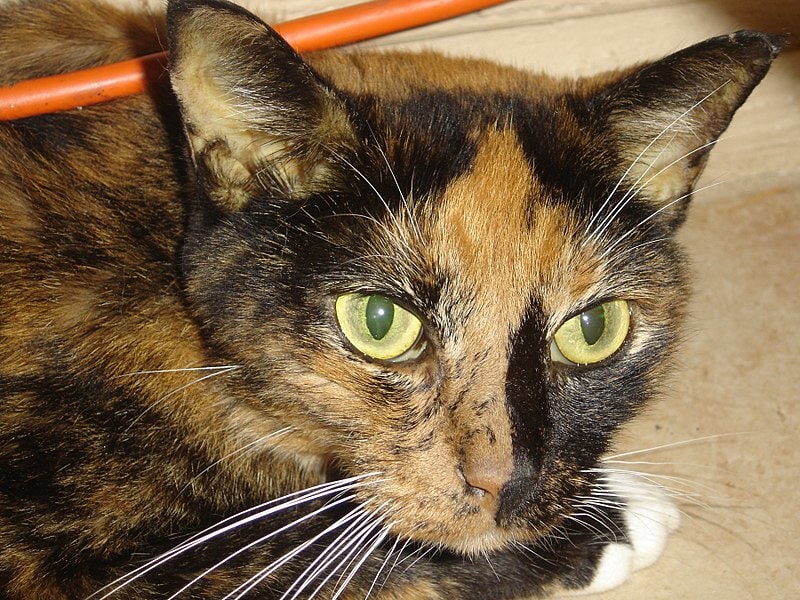
Jaundice or icterus are terms used to describe when the skin and tissues appear yellow.1 In cats, the most common causes of icterus are liver disease and an abnormal red blood cell count. Icterus can come on quickly. Once a diagnosis is made as to why your cat is jaundiced and treatment is started, your cat can recover. While the jaundice discoloration can improve over the course of a few days to weeks, the cause of the icterus may not completely resolve for weeks to months.
What Does Icterus Look Like?
You may notice a yellow color to areas which are typically white or light colored – the whites of the eyes, the ear pinna, the gums or even the belly area. If your cat has dark or long hair, the yellowing of the skin may be difficult to see. However, if you part the hair or wet it down to see the skin, you may notice it more.
While it can be difficult to tell in a litter box, your cat’s urine may also have a dark orange appearance. This may be more obvious if they are urinating out of their litter box on your floor or rugs.
Your cat may also be very lethargic or have labored breathing or a distended abdomen. Other cats may be vomiting, anorexic, and overall not doing well. Still, some cats are acting fairly normal and the only obvious abnormality is the icterus.
Common Causes of Icterus in Cats & Their Recovery
There are three categories of causes of icterus: pre-hepatic, hepatic, and post-hepatic. Hepatic is the term used to describe the liver. Pre-hepatic refers to problems with the blood or body prior to the blood being filtered through the liver. Hepatic refers to liver disease that can cause icterus. Post-hepatic typically refers to blockages or diseases that hinder appropriate blood flow out of the liver.
Depending on the cause, diagnostics, treatment, and recovery can vary greatly. Keep reading for a brief overview of each category of causes.
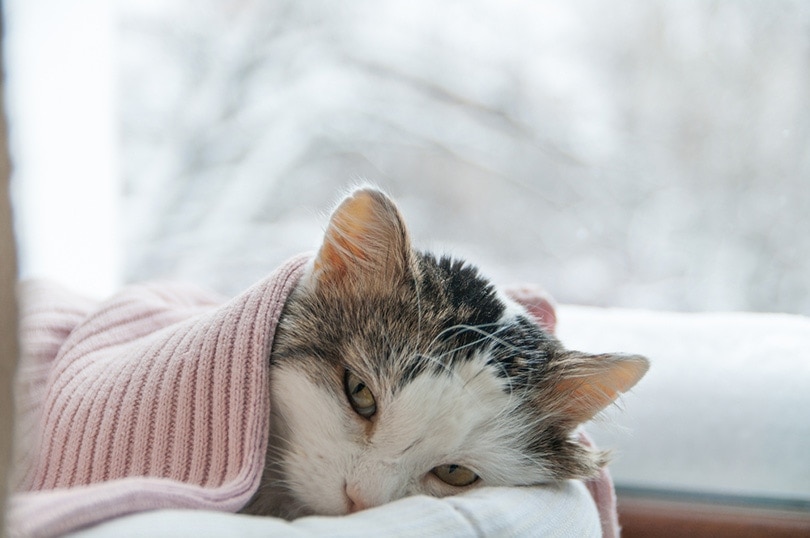
Pre-Hepatic Causes
Pre-hepatic refers to problems causing icterus prior to blood being filtered through the liver. The most common causes of pre-hepatic icterus in cats are infectious diseases. These diseases can range from viruses such as FeLV, FIV, parasites, such Babesia, and even feline infectious peritonitis (FIP). Most commonly, these diseases will cause destruction of the red blood cells. This red blood cell destruction in turn causes the yellow pigmentation that you see. On bloodwork, these cats will often have a severe anemia or low red blood cell count.
Different blood tests exist to try and find causes of a lot of the pre-hepatic diseases. Some of these tests can be done at your veterinarian’s office, but others need to be sent to specific laboratories for evaluation. Once a cause is found, treatment can be started. A lot of the diseases can be treated with aggressive antibiotics. The common length of treatment is 4 weeks, though this depends on the cause. Depending on how sick the cat is, they may need a blood transfusion, hospitalization, and more aggressive care. Still, other diseases have no cure, such as FIP. Treatment is aimed at keeping your cat comfortable but ultimately the disease progresses.
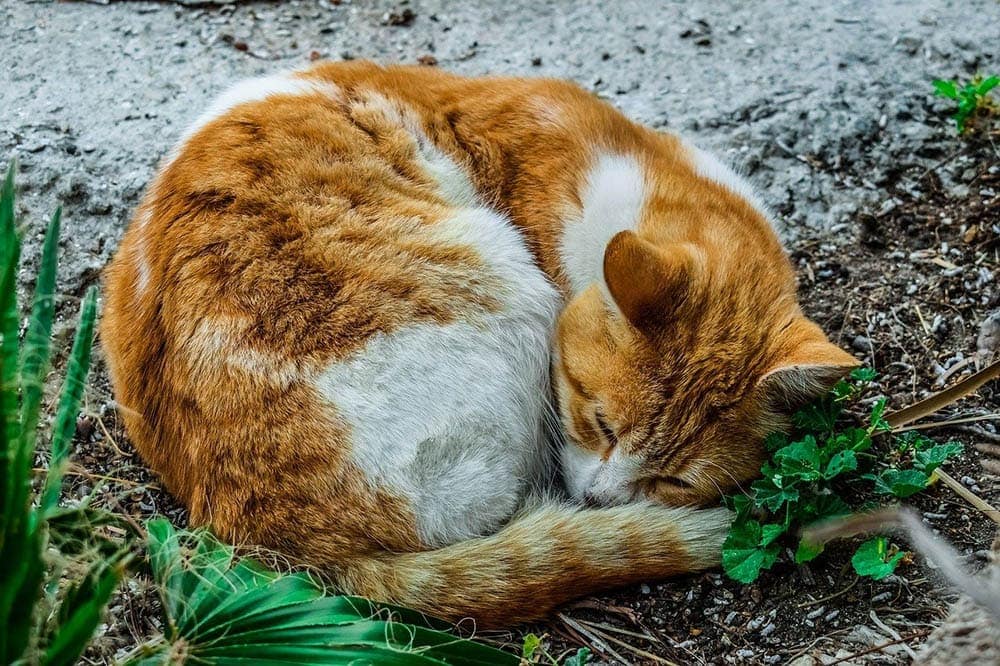
Hepatic Causes
Cats can suffer from multiple different types of liver disease. These diseases will cause issues with the biliary system of the liver. Different infectious diseases mentioned above can also affect the liver. Cats can also get neoplasia or cancers that affect the liver such as lymphoma.
One of the more common hepatic causes of icterus in cats is a condition called hepatic lipidosis, or fatty liver disease. This is a disease affecting cats only. It occurs commonly when an overweight cat stops eating and the liver suffers from a build-up of fat within its cells. Your cat may stop eating from stress, other underlying diseases, cancer, diabetes, urinary issues, etc. Your veterinarian must first diagnose why your cat has fatty liver disease and then start treatment.
With fatty liver disease, the cat needs calories. Oftentimes, a feeding tube needs to be placed in order to get nourishment and calories into your cat. When cats are sick, especially with liver disease, they can become very nauseous and anorexic. Even with appropriate medications, your cat still may not want to eat. A feeding tube ensures that not only can your cat receive calories and nutrition to heal the liver, but medications can also be administered into the tube.
Hepatic lipidosis can take months to resolve and the liver to go back to normal function. With other conditions, such as infectious diseases or cancer, prognosis and timeline vary greatly.
Post-Hepatic Causes
If the bile duct outside the liver (extrahepatic bile duct) becomes blocked for any reason, normal flow of bile cannot occur. The blockage can occur from a stone, tumor, or even just severe inflammation. Unfortunately, even with surgery, cats affected with this have a guarded prognosis. Without surgery, your cat will not recover from its disease and jaundice.
Another common post-hepatic cause of jaundice in cats is referred to as feline triaditis. This is a combination of inflammatory bowel disease, cholangitis, and pancreatitis. This condition is exceptionally complicated and very difficult to diagnose. Because inflammatory bowel disease (abbreviated IBD) is a chronic, life-long condition, treatment is aimed at controlling short-term signs and long-term stability. Resolution of icterus varies greatly with this disease and can easily take weeks to improve.
Conclusion
Cats can recover from jaundice, or icterus, but treatment may need to be aggressive and lengthy. Your veterinarian may need to do extensive blood testing, imaging, and testing just to find an exact diagnosis. Once diagnosed, treatment can vary greatly from antibiotics to aggressive hospitalization with a feeding tube placed, sometimes even surgery. Therefore, it’s impossible to pinpoint an exact timeline as to when your cat’s icterus may resolve. Some cats do not recover and may succumb to their diseases. Unfortunately, when it comes to icterus in cats, these cases are not one size fits all.
Featured Image Credit: Sabar, Wikimedia, licensed under Creative Commons Attribution-Share Alike 3.0 Unported





